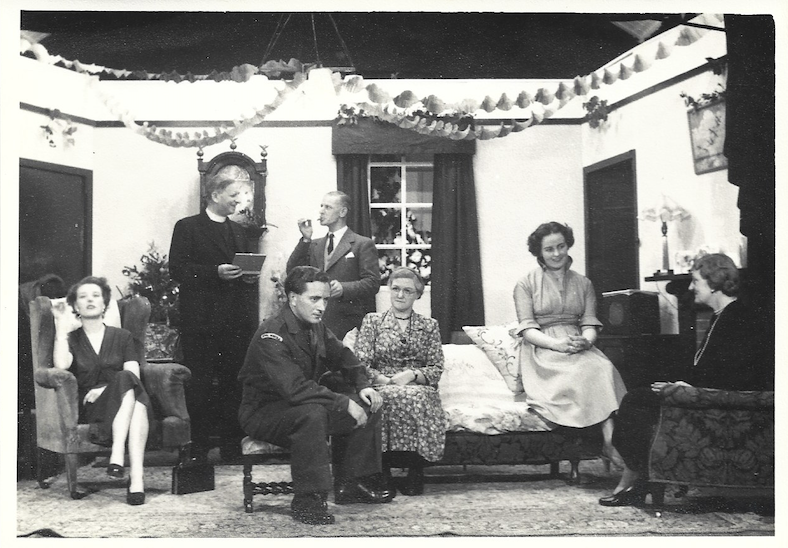In 2022, it was reported that English Literature had fallen out of the Top 10 most popular subjects to take at A-Level. As an English university student, I was curious about where we are now: have things changed?
What is it like these days teaching one of the most fundamental – and yet glanced over – subjects on the front lines? I sat down with someone who knows a thing or two about teaching on the front lines: the iconic Wymondham High teacher (one of mine at A-Level!) Emma Perchard.
“One of the main causes [of the decline in numbers] was the promotion of STEMM for young women. There has been a big recent movement to get young women into STEMM – which I understand, of course. But it is to the detriment of English. We have always lost bright boys. But we have now started to lose bright girls. Young girls know that STEMM is where the careers are and where the money is – so numbers have dropped significantly. The dropping of AS Levels will also have accounted for some of it. We also go up against History quite a lot.”
But, as she later told me, it is not all doom and gloom. “It’s up and down! We are looking at good numbers this year. From September, we are introducing a combined Language/Literature A-Level. We have lost kids to Notre Dame and Jane Austen Sixth Forms because of Lang/Lit being available there. So, we may lose Literature students to Lang/Lit, but that is good if it means we get another 10 to stay at Wymondham (and Lang/Lit is still a very literary subject!).”
So whilst numbers have dropped, no one pattern speaks for all years’ intakes. The same applies to the oft-stated truism that English Literature is very female-dominated: “the A-Level class I’ve just said goodbye to,” Ms Perchard told me, “ – more boys than girls! Many boys cited Lords of the Flies as the reason they took English further. Ultimately, which pupils we get will rely on who they had for GCSE (and has it made them like the subject?), what texts they’ve studied (and how much they have enjoyed them), and how much of a reader they are. Reading has dropped off hugely in the last few years and that has had an impact on English Literature.”
And it is not as if young people are lacking in enthusiasm. Ms Perchard’s anecdotes revealed that many pupils are just as interested and passionate about debating as ever before: “This morning, Year 9 have been writing to the new Education Secretary [as an exercise] as to whether Shakespeare should remain a part of the National Curriculum. We started it off as a debate, and the options were to agree, disagree, or suggest an alternative: e.g. Shakespeare should be reduced or taught outside of exams. They really got on board with that. In terms of opinions, it was nearly a third of pupils for each position.”
“Of course,” she said for good measure, “Shakespeare has his place. Re: Romeo and Juliet – do teenagers still do sneaky things behind their parents’ backs? Do teenagers still do stupid, thoughtless things? Do people still have ongoing fights with no real reason behind them? Do teenagers still fall “in love at first sight”? Human nature does not change! I teach Romeo and Juliet in a very cynical way. The story is embarrassing. Romeo is so shallow and fake (Rosaline who?). Yet people who fall in love with one person and forget about them immediately when they meet someone else at a party? They still exist!”
“Are there any topics which get pupils the most animated?”
“Crime fiction. In mid-term reflections, crime always comes up [as a favourite topic]. Bizarrely, myths and legends are popular in Year 7! (I can’t bear teaching them but the kids love them, and they will then go away and read Stephen Fry’s Mythos or Percy Jackson. I will be delegating Myths and Legends to my colleague and teach Victorian Villains instead.) And if you can get a good novel, they are popular, like John Boyne’s Boy at the Top of the Mountain.”
“We all know that teaching is a thankless job at the best of times,” I said. “Does teaching English Literature have its own particular set of challenges?
“People not reading is an issue, and people not valuing reading. Many a parents’ evening I will ask, ‘are they reading?’ to mixed responses. Homework is affected: I can tell which pupils still read based on the quality of writing. I have since made my daughter read half an hour every night because I see the massive difference it makes! Vocabulary, style, punctuation, ideas, originality, imagination – everything comes from reading. I tell parents, ‘just make them read for ten minutes a day.’ One of my favourite things as a parent is my child asking, ‘…can I read for longer than ten minutes?’ But before that stage, ten minutes a day is a manageable start.”
“Another challenge is that sometimes it can feel that the English Department are the only ones who care about handwriting, literacy, spelling and punctuation. We fight that battle by ourselves and it ought to be everybody’s. From September, Years 9 and 10 are getting an extra hour of English Literature per fortnight, and we justified it by pointing out that the reading skills you learn in English Literature have benefits for every other subject: analysis, writing, punctuation, etc.
“But behaviour and engagement are not issues! I would say pupils are pretty engaged.”
There is also optimistic news about student confidence in engaging in debate. Briefly remembering Chimamanda Ngozi Adichie’s warning that students are “terrified of having the wrong opinions”, I asked Ms Perchard if her pupils ever seem afraid of expressing themselves.
“I wouldn’t say so, no! Last week, I did some debate with my pupils and gave them a list of 25 prompts. They ranged from “does pineapple belong on pizza?” to “pros and cons of the death penalty”, with everything in between. I listened to their conversations and no, I would not say they are scared to give their opinions. I also got them to rate themselves in terms of how much of an opinion-pushover they are, or if they are too set in their ways without listening to other people’s views. And they know each other pretty well, even at age fourteen! They are mouldable too; you see them rethinking their entire views in the face of new evidence. I think the opposite: they are too quick to express their views because that is the culture they see online, and then when you suggest something else, they reconsider.”
“You mention that crime fiction is a particular conversation-starter. What is your view on ‘high brow and low brow’?”
“I saw some snobbery when Agatha Christie was placed on the specification. With The Murder of Roger Ackroyd, people ask, ‘what do you analyse?’ The analysis is in the plotting! Because the plotting is so clever. There is also nothing wrong with books that are just really enjoyable. That is the goal if it gets children reading outside of school. Some schools in this area teach Othello or Oliver Twist in Year 7. What a way to switch a kid off. There is no room for snobbery. My specification choice is a book that is challenging enough that they would not have chosen it for themselves (so not Harry Potter – they’re reading that already!), but equally, they will hopefully feel inspired enough to read the author’s other books. I often also hear parents say, ‘I’ve told my son he needs to be reading some Dickens’…but why, if he’s loving his Percy Jackson? Just because he’s a bright boy, why switch him to a book that might switch him off reading? Audiobooks are good. To prevent classics from switching kids off reading altogether, you can introduce them via audiobooks.”
“Are there any explosive texts, speaking of curriculum?” I asked excitedly, remembering my own Sixth Form days. “I remember Tess of the d’Urbervilles inspiring the most (literally) furious debate in the classroom. I was unpopular in loving it; most of them hated it. Are there any other texts that inspire that level of conversation?”
“It’s less individual texts that inspire debate, and more the specific topics. For example, the use of language: why is the N-word used in Delia Owens’s Where the Crawdads Sing? We also ask questions like, ‘which character in An Inspector Calls would you least like to sit next to in class?’ ‘Well, not Mr Birling because he’d bang on about himself the whole time’, etc. Or, ‘will Beatrice and Benedick stay together?’ Those are specific questions we ask to try and develop their critical voices and provoke debate.”
So the positive news is that the student love of debate, conversation, provocative topics, challenging themselves and even reconsidering their views in the face of new evidence is still alive and well! There was only one question left to ask: “how do we get those students in the English classroom in good numbers? What is your Dragons’ Den pitch for English as a subject?”
“English is everything. Without it, there is nothing. The skills we teach to read, write, speak, and listen are everything. Let alone the fact that it can give you lifelong enjoyment of texts. Let alone that you can find a voice that relates to you, develop your own voice, engage with different voices, engage in different cultures, etc. Michael Gove’s diktat of “only British writers!” had an impact on the latter; it is an ongoing movement to push for writers of different races and cultures. English Literature is all the skills, all the knowledge, all the cultural heritage. It is about kids developing their own voices and hearing others’. There is not a second wasted here with what you learn. It is everything.”















